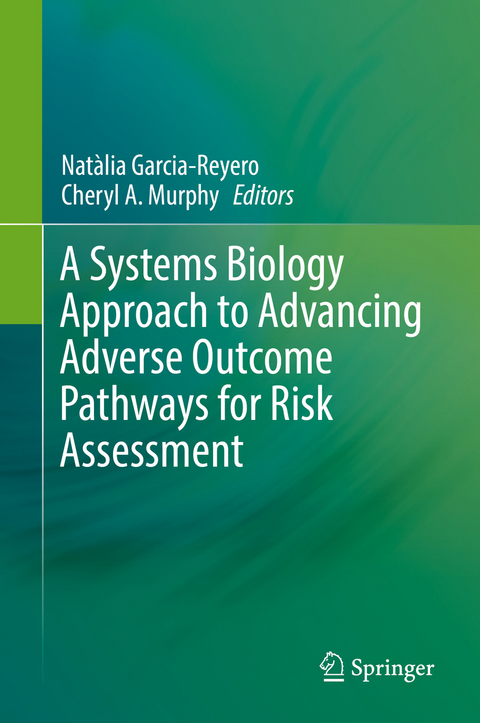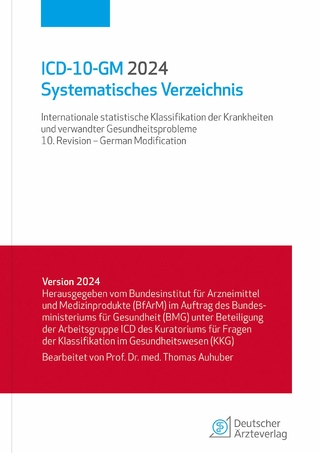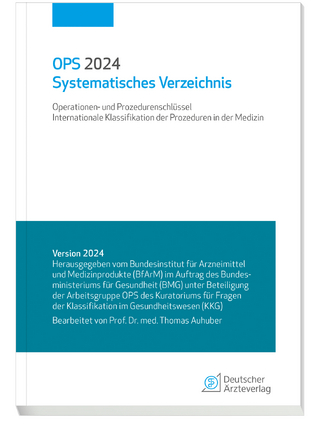
A Systems Biology Approach to Advancing Adverse Outcome Pathways for Risk Assessment
Springer International Publishing (Verlag)
978-3-319-66082-0 (ISBN)
Natàlia Garcia-Reyero Vinas received her BS in Biology from Universitat de Girona, and her MS and PhD from Universitat de Barcelona, in Barcelona, Spain. She is now a researcher at the US Army Engineer Research & Development Center Environmental Laboratory. Her research focuses on environmental pollutants and their effects on aquatic species while trying to elucidate their mechanisms of action using ecotoxicogenomics and a systems biology approach. Cheryl A. Murphy received her BSc in Marine Biology from Dalhousie University, Canada, her MSc in Physiology and Cell Biology from University of Alberta, Canada and PhD in Oceanography and Coastal Sciences from Louisiana State University. She is now an Associate Professor at Michigan State University, in the Department of Fisheries and Wildlife. Her research focuses on environmental pollutants and stressors and their effects on aquatic species while trying to link subtle molecular and subcellular responses to population relevant endpoints that are crucial for ecological risk assessment.
1. Introduction.- Part I: Biology.- 2. "Non-model" species for eco and human health risk assessment.- 3.The fish embryo as a model for eco-toxicology and other potential models.- 4.Invertebrates/Plants.- 5.Behavioral/Neurobehavioral linkages to AOPs.- 6. Species extrapolation - common pathways etc.- 7. Life History Evolution, incorporating evolutionary processes into AOPs to extrapolate.- Part II: Incorporating Biology into AOPs.- 8.Use of HTS assays to infer MIEs.- 9. AOP development: how to infer and define KER.- 10. The development of quantitative AOPs.- Part IV: Incorporating Modeling into AOPs.-11.Computational approaches (network science, etc) in AOPs: linking molecular datasets.- 12.Computational approaches : Dynamic Energy Budgets.- 13. Modeling approaches in AOPs: extrapolation from individual to population.- 14. Modeling approaches that augment AOPs: GUTS, QSAR, TKTD PBTKTD.- 15. Exposure science and other stressors? How to incorporate.- 16. AOP as an organizing framework and implications for biological science-AOP evolution.- 17. Use and acceptance of AOPs for regulatory applications, use of AOPs in human risk assessment, and legislation.
| Erscheinungsdatum | 17.03.2018 |
|---|---|
| Zusatzinfo | XIV, 422 p. 77 illus., 64 illus. in color. |
| Verlagsort | Cham |
| Sprache | englisch |
| Maße | 155 x 235 mm |
| Gewicht | 812 g |
| Themenwelt | Informatik ► Weitere Themen ► Bioinformatik |
| Medizin / Pharmazie ► Medizinische Fachgebiete ► Pharmakologie / Pharmakotherapie | |
| Naturwissenschaften ► Biologie | |
| Schlagworte | AOP • Biomedical and Life Sciences • Ecotoxicological • Life sciences: general issues • Metabolomics • molecular • pharmacology • Pharmacology/Toxicology • Proteomics • systems biology • Transcriptomics |
| ISBN-10 | 3-319-66082-9 / 3319660829 |
| ISBN-13 | 978-3-319-66082-0 / 9783319660820 |
| Zustand | Neuware |
| Haben Sie eine Frage zum Produkt? |
aus dem Bereich


